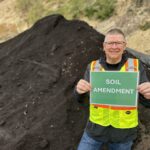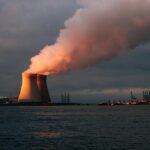American War Deserter Given Stay of Deportation in Canada
From Wikinews
An American soldier who served in Afghanistan, Jeremy Hinzman was granted a surprise stay of deportation by the Federal Court of Canada one day before he was scheduled to be sent back to face trial for desertion in the United States. The move has put the issue of American deserters who fled to Canada following the 2003 Invasion of Iraq back in the national spotlight.
Judge Richard Mosley heard arguments from Hinzman’s lawyer that suggested that while desertion was not an unfairly punished crime south of the border, the sentencing of deserter Robin Long several weeks ago proved that the country was targeting those deserters who had also been vocal opponents of the Iraq War with harsher sentences. Prosecutors had pointed to a media interview in which Long criticised the invasion as being illegal and immoral, arguing that it constituted an aggravating factor worthy of additional punishment.
Mosley ruled Hinzman would likely “suffer irreparable harm” if Canada were to forcibly return him to the United States.
One of the first American soldiers to cross the border in January 2004, Hinzman cited his religious conversion to the Quaker church which forbids violence, but was ordered deported back to the United States along with eight other soldiers who had entered Canada.
Supporters surround an American soldier seeking refuge in Canada
A non-binding vote in Canadian Parliament in June overturned the orders and supported allowing the deserters to remain in the country legally. However, the ruling Conservative Party ignored the vote and ordered the deportations to continue.
A number of grassroots protests spread across the country, demanding that Hinzman, his wife and two children, and as many as 40 other soldiers and their families now hiding in Canada be allowed to remain.
During the Vietnam War, more than 20,000 American men fled to Canada to avoid serving in combat, with as many as 125,000 family members, supporters and protesters following them. It marked the largest political emigration from the United States since the American Revolution two centuries earlier.






















